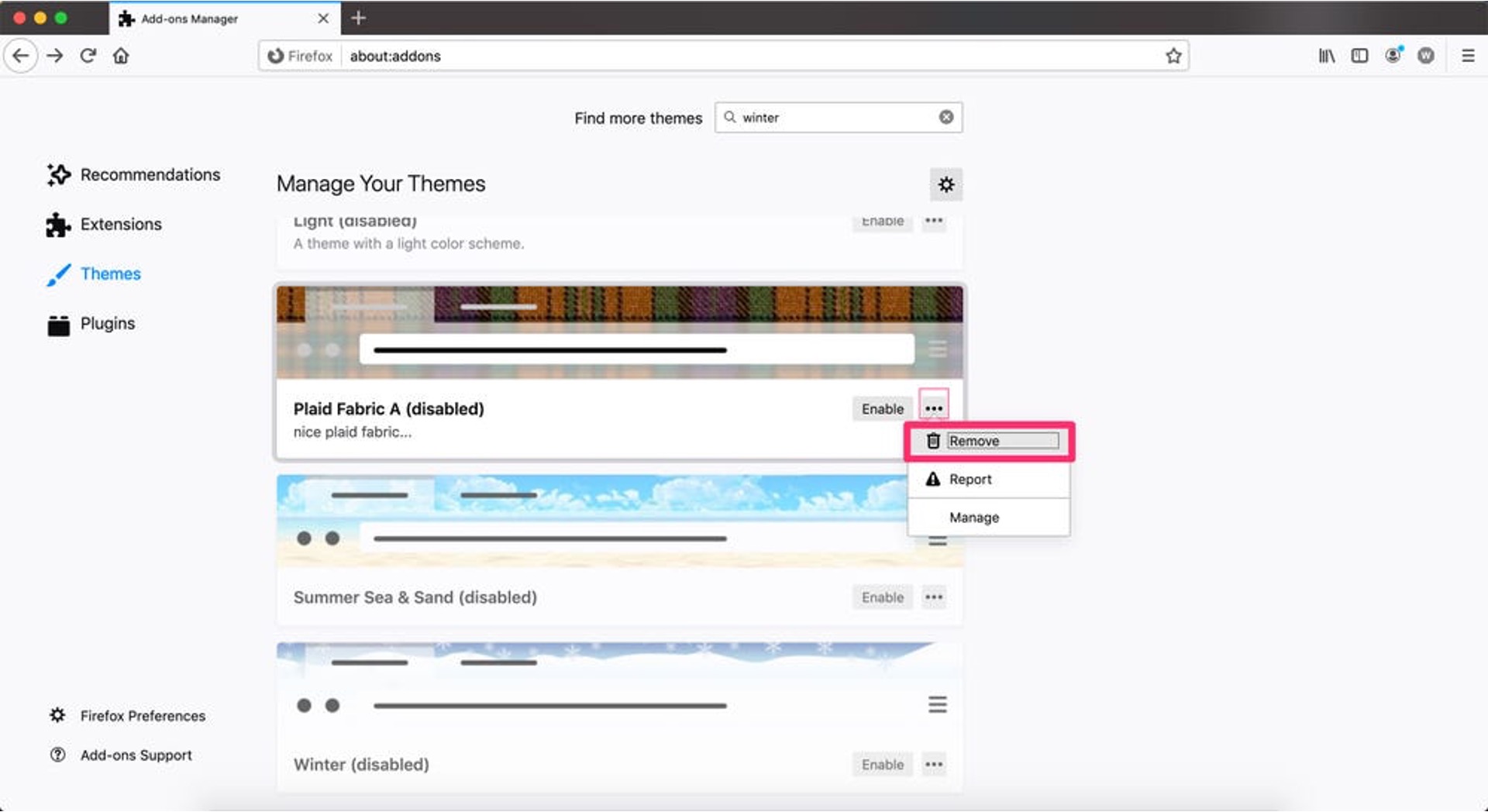Introduction
Java is a versatile and powerful programming language that is widely used for developing applications, websites, and web-based content. It provides a robust platform for creating interactive and dynamic web experiences. However, in order to harness the full potential of Java within the Firefox browser, it is essential to ensure that Java is properly installed and configured. This article will guide you through the process of checking your Java installation, enabling Java in Firefox, testing Java functionality, and troubleshooting common Java issues.
By following the steps outlined in this guide, you will be able to seamlessly integrate Java with your Firefox browser, allowing you to access a wide range of Java-based content and applications. Whether you are a developer, a student, or a casual user, having Java running smoothly in Firefox can significantly enhance your web browsing experience and enable you to interact with a myriad of Java-powered resources.
So, let's embark on this journey to unlock the full potential of Java within Firefox. Whether you are looking to run Java applets, access Java-based web applications, or simply ensure that your browser is equipped to handle Java content, this comprehensive guide will equip you with the knowledge and tools necessary to achieve these objectives. Let's dive in and explore the world of Java within the Firefox browser!
Checking Java Installation
Before enabling Java in Firefox, it's crucial to verify that Java is installed on your system. Here's how you can check your Java installation:
-
Accessing Java Control Panel: On Windows, you can navigate to the Control Panel and locate the Java icon. Clicking on it will open the Java Control Panel, where you can manage Java settings and check the installed version. On macOS, you can access the Java Control Panel through System Preferences.
-
Using Command Line: If you prefer using the command line, you can open a terminal or command prompt and type "java -version". This command will display the installed Java version and runtime information.
-
Visiting Java's Official Website: Another method is to visit the official Java website and utilize their "Verify Java Version" tool. This web-based tool detects your installed Java version and provides guidance if an update is required.
-
Checking Browser Plugins: Within your browser settings, you can verify the presence of the Java plugin. In Firefox, you can access the Add-ons section and look for the Java plugin in the Extensions or Plugins tab.
-
Verifying Java Installation on Specific Websites: Some websites offer tools or tests to check if Java is installed and functioning correctly. You can visit such sites to confirm the status of your Java installation.
By performing these checks, you can ensure that Java is installed and accessible on your system. If Java is not detected or if an outdated version is found, you may need to update or reinstall Java to proceed with enabling it in Firefox. This initial step is crucial for a seamless integration of Java with your Firefox browser, allowing you to leverage the full potential of Java-based content and applications.
Ensuring that Java is properly installed sets the stage for the subsequent steps of enabling and testing Java in Firefox. With a verified Java installation, you can proceed confidently to the next phase of configuring Java within your Firefox browser.
Enabling Java in Firefox
Enabling Java in Firefox involves configuring the browser to recognize and utilize the Java plugin, allowing seamless interaction with Java-based content and applications. Follow these steps to enable Java in Firefox:
-
Accessing Firefox Add-ons: Open Firefox and click on the menu icon (three horizontal lines) in the top-right corner. From the dropdown menu, select "Add-ons." This will open the Add-ons Manager tab within Firefox.
-
Navigating to Plugins Section: Within the Add-ons Manager, locate and click on the "Plugins" option in the left-hand sidebar. This will display a list of installed plugins, including Java if it is already present.
-
Enabling Java Plugin: If the Java plugin is listed but disabled, you can enable it by clicking on the "Enable" button next to the Java plugin. This action activates the Java plugin for use within Firefox.
-
Installing Java Plugin (if necessary): In the event that the Java plugin is not listed in the Plugins section, you may need to install it. Visit the official Java website to download and install the Java plugin for Firefox. Once installed, return to the Plugins section and ensure that the Java plugin is enabled.
-
Verifying Java Plugin Status: After enabling or installing the Java plugin, it is advisable to verify its status. You can do this by visiting a website that utilizes Java applets or content. If the Java plugin is functioning correctly, the website's Java-based elements should load and operate seamlessly within Firefox.
By following these steps, you can effectively enable Java in Firefox, empowering the browser to handle Java content and applications with ease. Once Java is enabled, you can explore a wide array of interactive web experiences, ranging from dynamic applets to feature-rich web applications that leverage the power of Java.
Enabling Java in Firefox is a pivotal step in harnessing the full potential of Java within the browser environment. With Java seamlessly integrated into Firefox, you can engage with diverse Java-based content and applications, enriching your web browsing experience and expanding the scope of interactive web interactions.
Testing Java in Firefox
Once you have enabled Java in Firefox, it's essential to verify that Java is functioning as expected within the browser environment. Testing Java in Firefox involves confirming that Java-based content and applications load and operate seamlessly. Here's how you can test Java in Firefox to ensure that it is fully functional:
-
Visiting Java-Enabled Websites: Navigate to websites that are known to utilize Java applets or content. These websites may include interactive simulations, educational resources, or business applications that rely on Java functionality. By accessing such sites, you can gauge the performance of Java within Firefox and observe how it handles Java-based elements.
-
Interacting with Java Applets: Explore web pages featuring Java applets and interactive content. Engage with these elements to verify their responsiveness and functionality. This can involve interacting with dynamic visualizations, virtual environments, or data-driven applications that showcase the capabilities of Java within the browser.
-
Running Java-Based Applications: If you have access to Java-based web applications or tools, such as online calculators, collaborative platforms, or multimedia players, utilize these resources within Firefox. Test their performance and usability to ensure that Java is seamlessly integrated and capable of powering diverse web-based functionalities.
-
Verifying Java Version Information: Check the version and runtime details of Java within Firefox. This can be done through the browser's settings or by accessing Java-related information within the web pages that utilize Java. Confirming the installed Java version and runtime environment provides insights into the compatibility and currency of Java within Firefox.
-
Troubleshooting Any Issues: If you encounter any issues while testing Java in Firefox, such as non-responsive applets or error messages, troubleshoot these issues to identify potential causes. This may involve reviewing browser settings, updating Java components, or seeking assistance from relevant support resources.
By conducting these tests, you can ascertain the robustness and reliability of Java within Firefox. This validation process ensures that Java is effectively integrated into the browser, allowing you to engage with a diverse range of Java-powered content and applications without encountering compatibility or performance issues.
Testing Java in Firefox serves as a crucial checkpoint in the process of enabling and utilizing Java within the browser environment. By confirming the seamless operation of Java-based elements, you can harness the full potential of Java and leverage its capabilities to enrich your web browsing experience.
Troubleshooting Java Issues
When encountering issues with Java in Firefox, it's essential to approach troubleshooting systematically to identify and resolve potential challenges. Here's a comprehensive guide to troubleshooting common Java issues within the Firefox browser:
-
Check Java Version: Start by verifying the installed Java version on your system. Ensure that you have the latest version of Java installed, as outdated versions can lead to compatibility issues with Firefox.
-
Browser Compatibility: Confirm that the version of Java you have installed is compatible with your specific version of Firefox. Some versions of Java may not be fully compatible with certain Firefox releases, leading to functionality issues.
-
Plugin Status: Within Firefox, navigate to the Add-ons Manager and check the status of the Java plugin. If it's listed but disabled, enable it to ensure that Firefox can utilize Java content seamlessly.
-
Clear Browser Cache: Clearing the browser cache can resolve issues related to outdated or corrupted cached data that may be affecting the proper execution of Java content within Firefox.
-
Security Settings: Review the security settings within Firefox to ensure that Java is not being blocked by any restrictive configurations. Adjusting the security settings to allow Java content can mitigate potential issues.
-
Update Java: If you are running an outdated version of Java, updating to the latest release can address compatibility and performance issues. Visit the official Java website to download and install the most recent version.
-
Restart Firefox: Sometimes, simply restarting the Firefox browser can resolve transient issues related to Java functionality. Close and reopen the browser to see if the Java-related problems persist.
-
Review Error Messages: If you encounter error messages while attempting to access Java content, take note of the specific error codes or descriptions. These messages can provide valuable insights into the nature of the issue.
-
Consult Java Documentation: Refer to the official Java documentation and support resources to troubleshoot specific error codes or known issues. The Java community often provides detailed guidance for addressing common Java-related challenges.
-
Seek Community Support: Engage with online forums, communities, or support channels dedicated to Java and Firefox. Sharing your specific issue with knowledgeable individuals can yield targeted solutions and troubleshooting tips.
By systematically addressing these troubleshooting steps, you can effectively diagnose and resolve Java-related issues within the Firefox browser. This proactive approach empowers you to overcome potential obstacles and ensure a seamless integration of Java with your browsing experience.
Remember, troubleshooting Java issues in Firefox is a dynamic process that may require iterative testing and adjustments. By leveraging these troubleshooting strategies, you can optimize the performance and compatibility of Java within your Firefox environment, enabling you to fully embrace the diverse range of Java-powered content and applications available on the web.

























